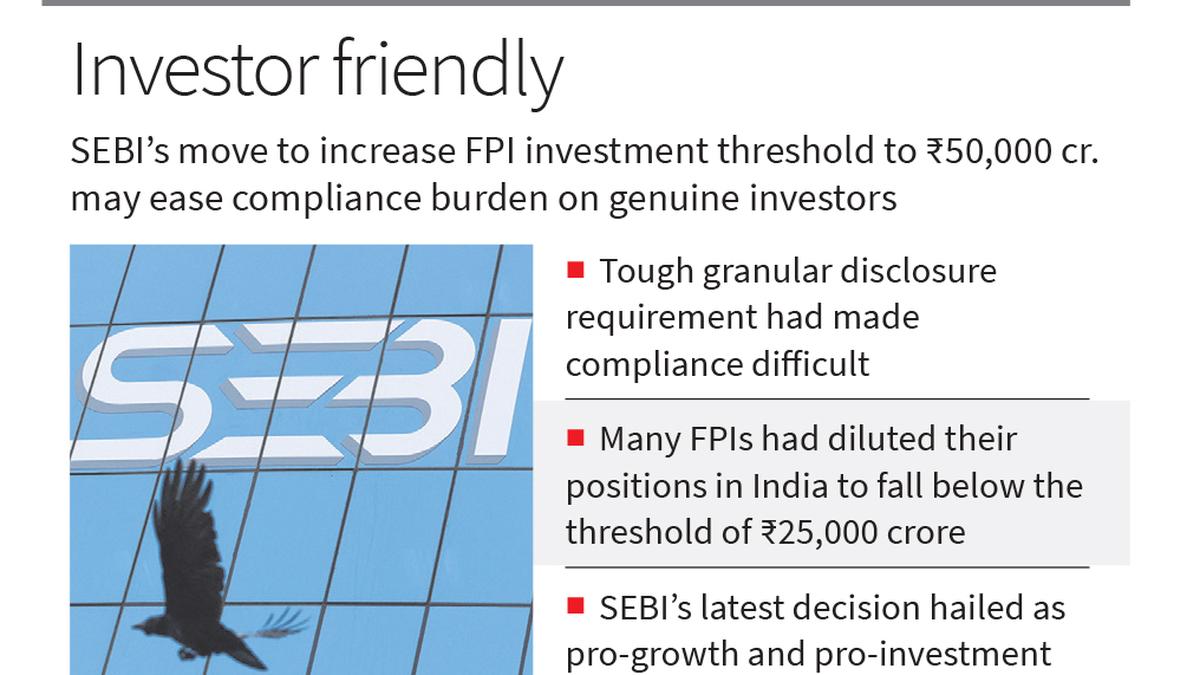
Easing FPI threshold can induce capital inflow, say experts
The Hindu
SEBI raises FPI disclosure threshold to ₹50,000 crore, easing compliance and potentially boosting capital inflows.
The Securities and Exchange Board of India’s (SEBI) decision to increase the threshold for FPIs to start making granular disclosures, to ₹50,000 crore, may increase capital inflows amid relentless selling by foreign portfolio investors (FPI) and ease the compliance burden on genuine investors, according to experts.
In its Q4 board meeting on Monday, SEBI increased FPI investment threshold for granular disclosures to ₹50,000 crore from the earlier ₹25,000 crore citing doubling of cash equity markets in the past couple of years. This means foreign portfolio investors, who invest more than ₹50,000 crore in Indian stocks, will have to disclose details of beneficial ownership and returns of FPIs among other details of the investing entities.
“We are providing the kind of regulations which will really facilitate it [investment in Indian markets]. We are in no way wanting to scare anybody away or things like that,” SEBI chairperson Tuhin Kanta Pandey said in a media briefing on Monday.
The revised norms are an amendment to the circular dated August 24, 2023, which brought in additional disclosure norms for FPIs to bring in more than ₹25,000 crore into Indian markets and invest more than half of their portfolio in a single entity.
The 2023 circular was seen as a move to prevent entities from flouting public shareholding norms and stock price manipulation using the FPI route, as alleged by shortseller Hindenburg against the Adani Group. “It is expected to enhance capital inflows, improve market depth, and ensure greater transparency. It simplifies compliance for mid-sized and small sized FPIs, encouraging greater participation in Indian equities, while reducing the compliance burden significantly,” said Mahavir Lunawat, chairman of the Association of Investment Bankers of India (AIBI) and group founder of Pantomath Financial Services Group.
“Because of the sheer size of their portfolio, they were getting caught into the granular disclosure requirement, which is always not a very easy one,” said Siddharth Shah, partner at Khaitan & Co, a Mumbai-based law firm.
He further said India probably might have been the only emerging market where this level of granular data was being sought, making compliances for such funds very difficult.





















 Run 3 Space | Play Space Running Game
Run 3 Space | Play Space Running Game Traffic Jam 3D | Online Racing Game
Traffic Jam 3D | Online Racing Game Duck Hunt | Play Old Classic Game
Duck Hunt | Play Old Classic Game











